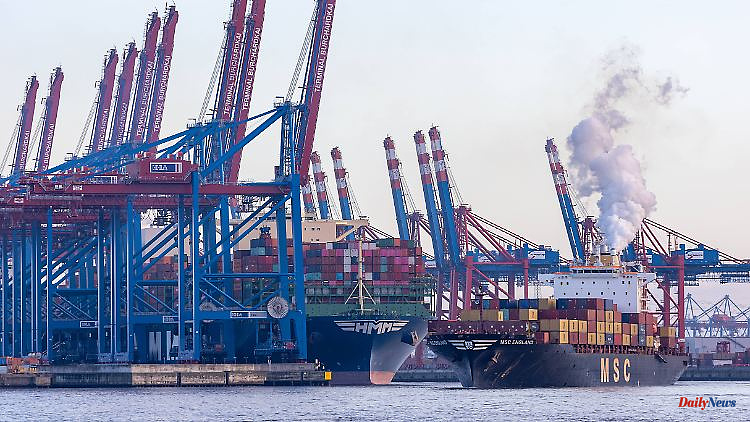Even in the crisis year 2022, goods produced in Germany are still very popular. The total value of exports even overshadows the previous record from the previous year. At the same time, the export surplus is falling - mainly because of the high costs of energy imports.
Germany's exporters achieved record results for 2022 as a whole, despite the recent weakening of the economy. Goods "made in Germany" with a total value of a good 1564 billion euros were delivered abroad last year, as reported by the Federal Statistical Office on the basis of calendar and seasonally adjusted data.
This exceeded the record for 2021 of a good 1,368 billion euros by 14.3 percent. However, the increase can also be explained by the significant price increases in recent months. These drove up the value of both exports and imports. The effects cannot be precisely quantified, since the Wiesbaden statisticians do not collect price-adjusted data on foreign trade.
Imports to Germany rose even more strongly than exports due to the high energy prices in 2022 as a whole: At 1488.1 billion euros, imports were 24.3 percent above the previous year's value.
The year 2022 ended weakly for German foreign trade: compared to the previous month, exports fell by 6.3 percent and imports fell by 6.1 percent. Among other things, sales in important customer markets such as the USA and China weakened.
The German export surplus fell to its lowest level in more than 20 years. The imports had a value of around 1.488 trillion euros, as reported by the Federal Statistical Office. This resulted in an export surplus of 76 billion euros - the lowest value since 2000. In 2021 the value of exports exceeded that of imports by 175.3 billion euros. In a comparison of 2021 and 2022, the export surplus was thus more than halved.
According to the statistics office, the background to this development was in particular the high cost of importing energy due to the Russian war of aggression in Ukraine. In order to reduce energy imports from Russia as quickly and largely as possible, Germany had to cover its needs from other suppliers at short notice last year, which was sometimes very expensive.












